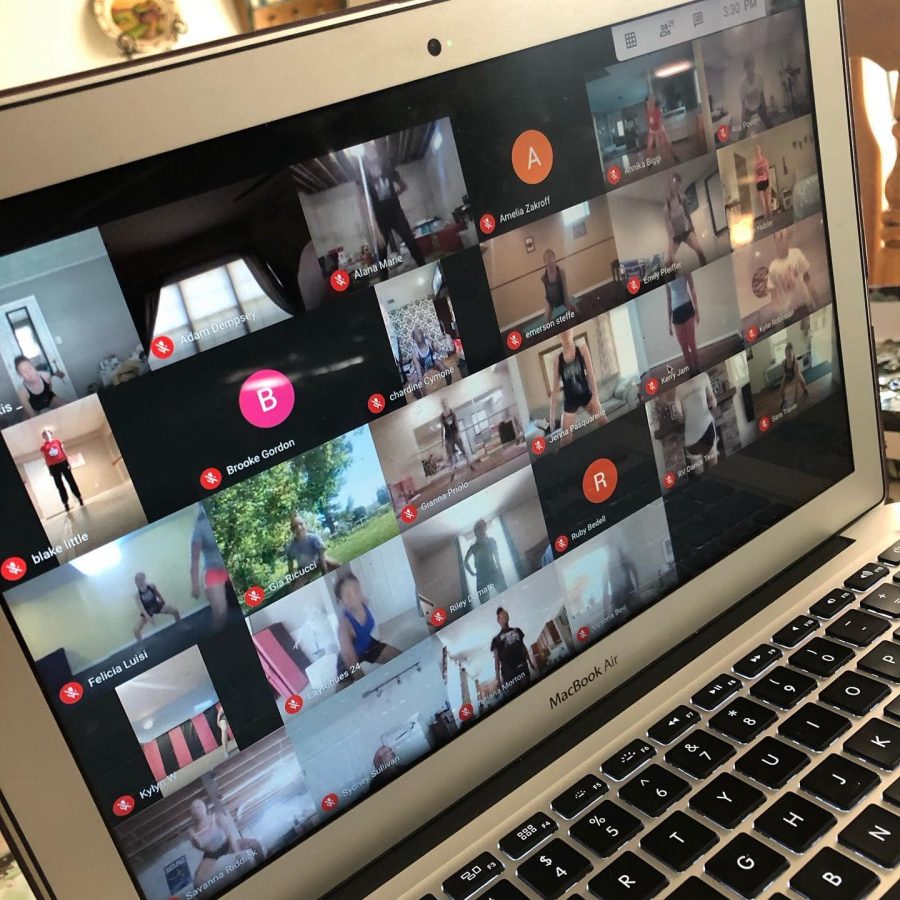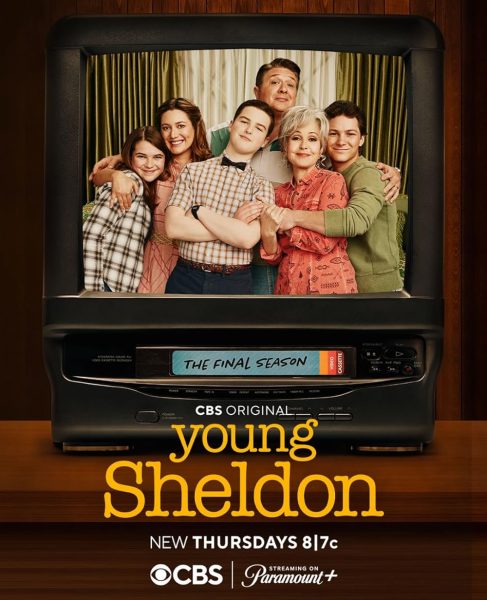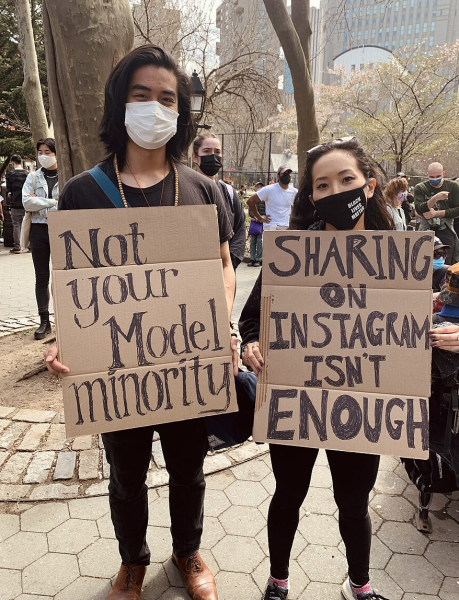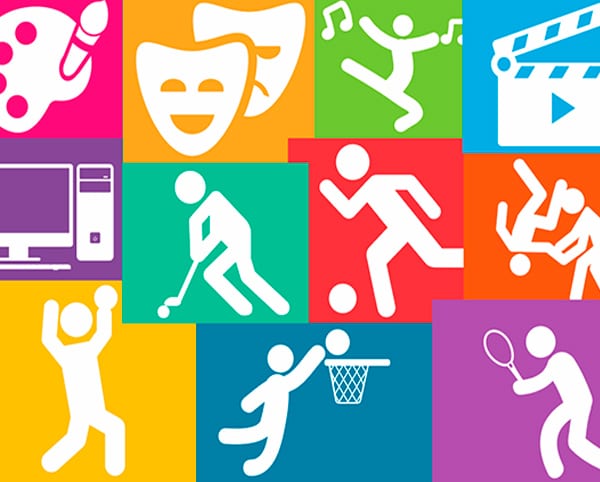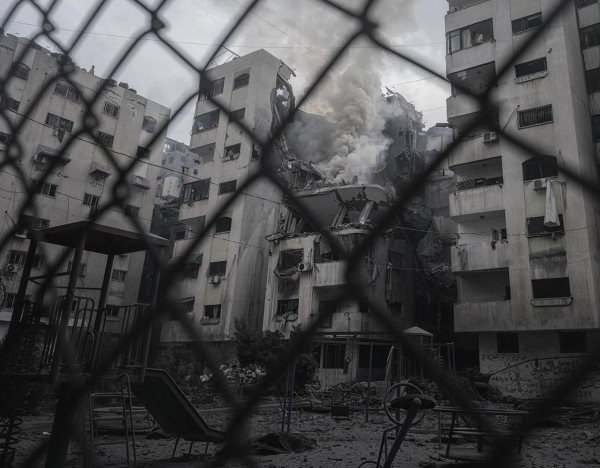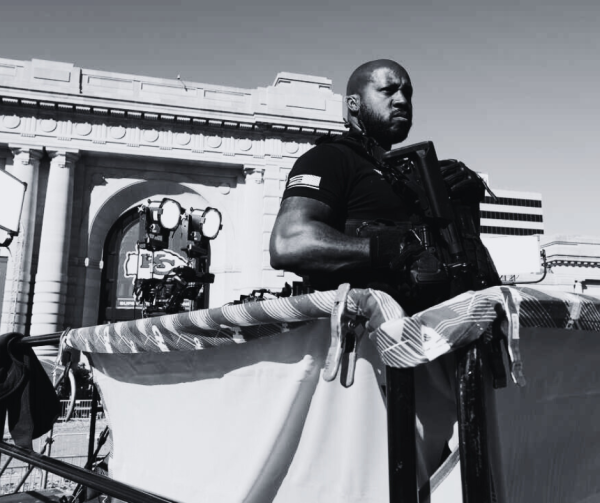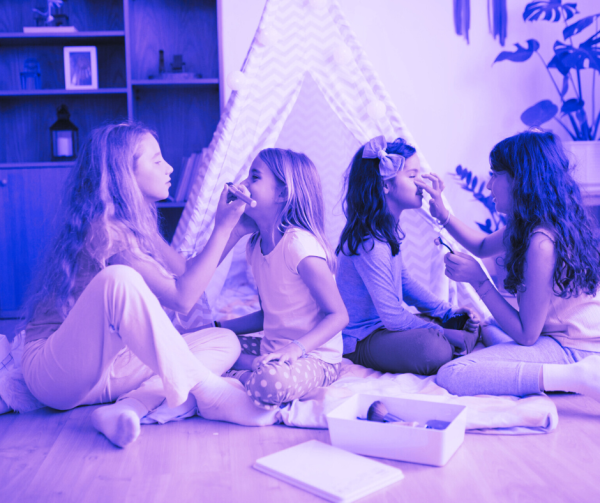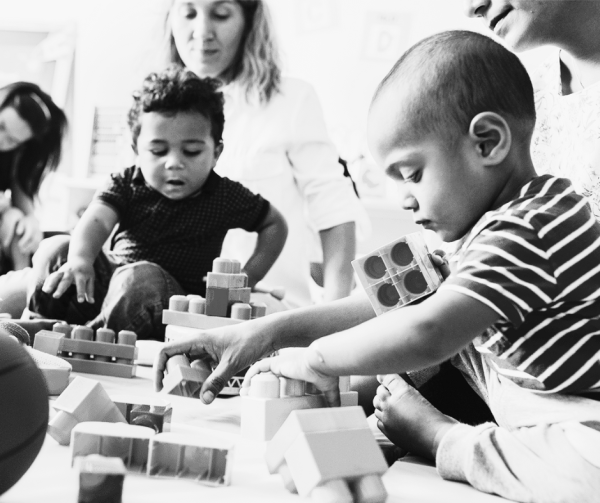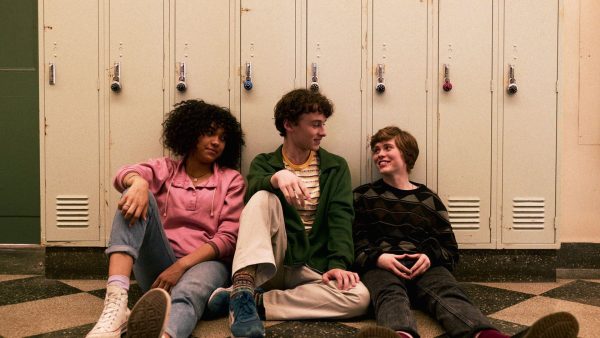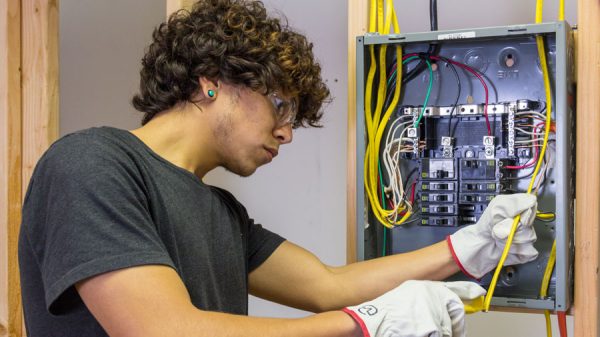High school sports retain their value during COVID-19
The need for socialization, exercise and stress reduction far outweigh the risk of COVID for high school teens
The Dance team began their virtual practices in June. They have continued virtually throughout the pandemic.
December 4, 2020
In the oppressive environment of the pandemic, Rancocas Valley Regional High School needs its sports more than ever. They provide an outlet for the high levels of stress brought about by the pandemic on top of school and they offer student-athletes an opportunity to socialize and get to know their teammates in this unprecedented time.
Not only are sports beneficial because of exercise in the conventional sense, but they also give students a way to escape from the boredom and stress imposed upon them by COVID-19 restrictions. Exercising allows them to vent the extra energy from being stuck at home. It has been proven to alleviate stress, help with anxiety and depression and improve sleep; all of which have become greater issues in today’s uncertain environment. As cross-country runner Abby Cifaldi said, “If I’m ever stressed or I am just having a bad day, running is the best thing for me to get my mind off things.”
Many students’ only outlet for stress is their sport. School, work and home responsibilities pile on, and they need to exercise alongside their teammates in order to alleviate the stress and be distracted from everything that is going on. “Cross country has given me an outlet to get outside and stay in shape,” said senior Ryan Maggs.
One of the greatest difficulties for students during the pandemic has been socialization, which is especially important for teenagers. Guidelines make it difficult to have the in-person gatherings and social events that high schoolers normally enjoy. With sports, student-athletes have the opportunity to socialize while being supervised by a coach to maintain COVID-19 safety guidelines. Thus, athletes can improve their mental health with social interaction while remaining safer than they would in a less supervised environment. As Maggs said, “[Cross country] has given me an opportunity to interact with my friends, which has been extremely relaxing.”
On the other hand, Jenna Tomasch, a volleyball player, expressed her disappointment at the reduced team bonding over the summer during the pandemic: “Because of the pods, we couldn’t interact with the freshmen as much.” Evidently, the virus has negatively affected the interaction and team-building of athletes; however, it has taught them to adapt and use virtual platforms. Many are now hosting online bonding activities and pre-game talks. Despite the reduced interaction, it would be much more harmful to student-athletes to completely get rid of sports at RV during the pandemic.
Conscious of the risks associated with COVID-19, teams are taking precautions to maintain the safety of all those involved. Masks, screenings and social-distancing measures ensure that athletes are safe during practice. In the event of an infection on the team, practice is canceled for two weeks to prevent further infections and identify if any other team members have been infected. Finally, athletes always have the choice not to participate if they or a family member is at higher risk for complications. Though there is a small risk of infection, the athletes benefit from continuing to play their sports.
The risks of contracting COVID-19 from playing a sport are outweighed by the value of sports for athletes’ mental, physical and social health during the pandemic. Sports give student-athletes an outlet for stress and boredom as well as the traditional value of exercise. They also provide a supervised environment in which students have the opportunity to socialize and bond with their teammates. Contributing to the overall well-being of athletes in an uncertain time, RV’s sports have an extremely valuable and positive impact during the pandemic.

